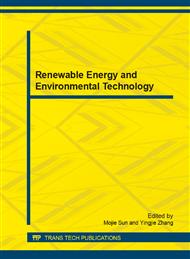p.4071
p.4075
p.4079
p.4085
p.4091
p.4097
p.4103
p.4107
p.4111
Land Use Conflicts and their Governance in Rural-Urban Transformation
Abstract:
Stakeholder Theory and System Analysis Approach were employed to study on land use conflicts and their management methods in rural-urban transformation and promote sustainable land-use and healthy urbanization development. The results indicate that land use conflicts are increasing seriously in rural-urban transformation, which has become the obstacle to sustainable land-use and healthy urbanization development. Under the state council, local governments and all enterprises, rural collective economic organizations, and peasants are the major stakeholders. Different interests of various stakeholders are the root of these conflicts. Land use conflicts can be dissolved through improving rural land property rights institution and land requisition system, and establishing coordination mechanism of interests based on the principle of interests balance in Rural-urban transformation.
Info:
Periodical:
Pages:
4091-4096
Citation:
Online since:
October 2013
Authors:
Price:
Сopyright:
© 2014 Trans Tech Publications Ltd. All Rights Reserved
Share:
Citation:


